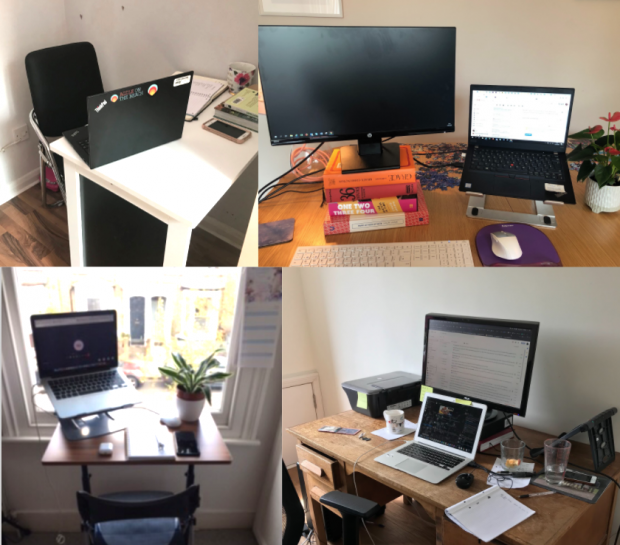
Context
In the Digital Transformation team at NHSX, we’re made up of about 20 Digital, Data and Technology (DDAT) professionals and 10 contractors. We usually embed into policy teams to help to understand their users and the problem they’re trying to solve. Our team also builds capability and assures digital spend across health. In response to the COVID-19 pandemic, we’ve had to quickly scale up our function to the rest of NHSX.
The COVID work has been split into different cells such as Clinical, Data, App, People, Scaling, and Vulnerable Isolated and Social Care (VISC). Our Digital Transformation team has been carrying out rapid design research to improve products and services. We’ve mostly worked in the VISC and Clinical cells on things like antibody testing, food and pharmacies, mental wellbeing, connectivity and devices for care homes. This is still ongoing and we’re taking time to reflect on what we’ve learnt.
What are we doing?
Over the next few weeks, we’re carrying out a design research project on our team as a service. The problem statement is:
How might we respond better in future health crises? What can we learn from this experience that will help us in the 'new normal' post COVID?
Outcomes from this work:
- We learn what went well, what didn’t and why
- We know more about the needs of the Digital Transformation team, senior leaders and project stakeholders in NHSX
- We have a new set of models and approaches to go to that we can refine and test
- We have a collective goal for the digital transformation profession
- We know how our assurance processes need to change to support new models
Why are we doing this?
We need to learn and improve as a team so that we can have a better impact for end-users across health. It’s important we design services that respond to user needs in a way that is rapid, iterative, and follows best practice.
We’d like to find out:
- What have we learned as DDAT professionals about our delivery approach and methods during this crisis?
- How have team members, senior leaders, and stakeholders felt?
- What has helped people to feel fulfilled and why?
- What challenges and frustrations have we faced?
- What would the team do differently next time?
- What ways can we develop and drive uptake of technology that is still valid and compliant?
- What new roles and new approaches do we need for working with ambiguity and identifying opportunities when there is no ‘service owner’?
What will it involve?
We are carrying out in-depth interviews, experience mapping, workshops, and anonymous surveys in 3 rounds:
- Round 1: Senior leaders
- Round 2: Digital transformation team
- Round 3: Project stakeholders in NHSX
Alongside this, we are reviewing themes from our retros, community meetings, and the outcomes of our key projects.
What will we do with it?
We will use these insights to come up with opportunities together that our team can take forward in small teams. This activity will help to reflect on learnings, celebrate success, and give us more empathy for each other and our wider stakeholders.
We will start testing and implementing what we find and measure whether or not this is working. We will test out new approaches and team structures depending on the problem we’re trying to solve. We will work collaboratively and in the open.
If you have learned any valuable lessons as a team during COVID that you’d like to share or contribute, please get in touch with sophie.rankin@nhsx.nhs.uk.
Leave a comment